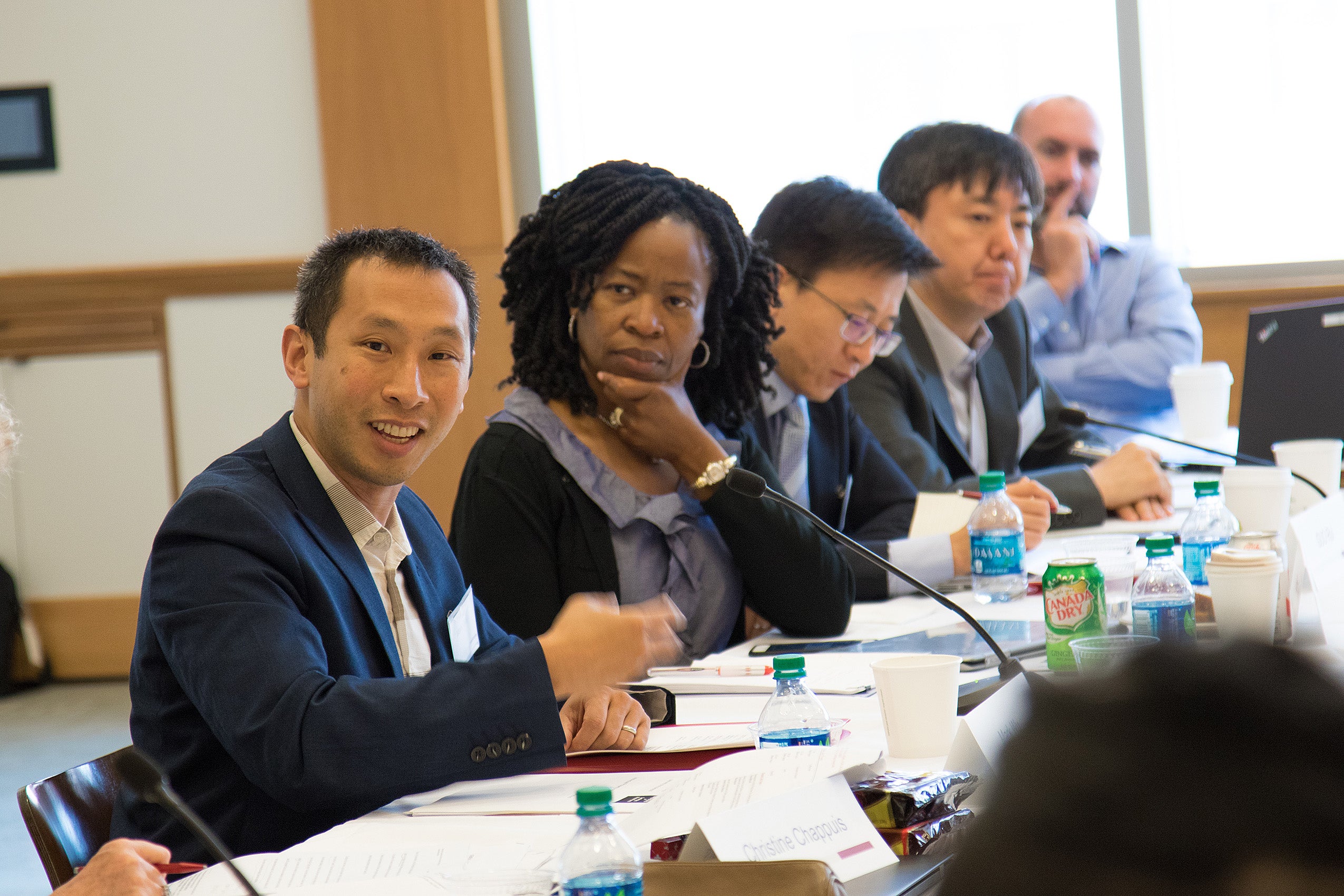Legal scholars from across the globe gathered at Harvard Law School in July for a two-day conference on law and development.
The conference is the latest iteration of a series of conferences held periodically by a loose consortium of schools—including Harvard Law School, the University of Geneva, Renmin University of China, and the University of Sydney, Australia—on themes of broad shared interest. Previous meetings focused, respectively, on property, corporate governance, and dispute resolution. This year’s conference also included participants from the National Autonomous University of Mexico, Seoul National University, the Universidad de los Andes in Colombia, and the University of the Witwatersrand in South Africa.
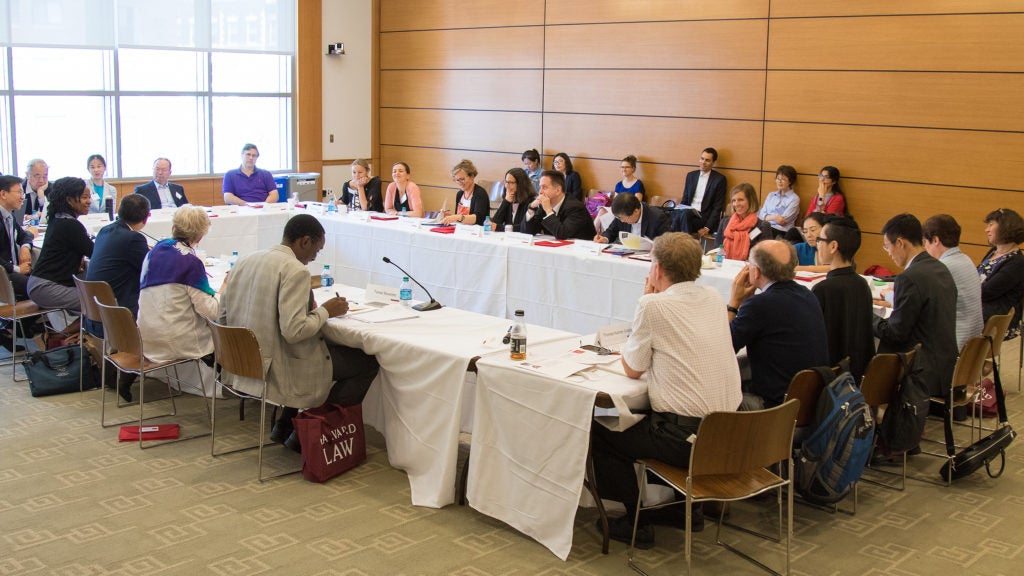
This year’s session explored law and development from five vantage points: Business and Trade; Gender and Family; Disability; China as a Case Study; and Three Examples of Potential for Reform.
Harvard Law School Dean John F. Manning ’85 greeted conference participants and delivered opening remarks. Other Harvard Law School participants included the following:
Professor William Alford ’77, the vice dean for the Graduate Program and International Legal Studies, helped organize the conference and discussed his paper entitled “Dissonance in Peter Singer’s Treatment of Development and Disability.”
Helena Alviar LL.M. ’97 S.J.D. ’01, the Robert F. Kennedy Visiting Professor at Harvard Law School, and former dean and currently a professor of the Facultad de Derecho at Universidad de Los Andes in Bogota, Colombia, moderated the panel on gender and family.
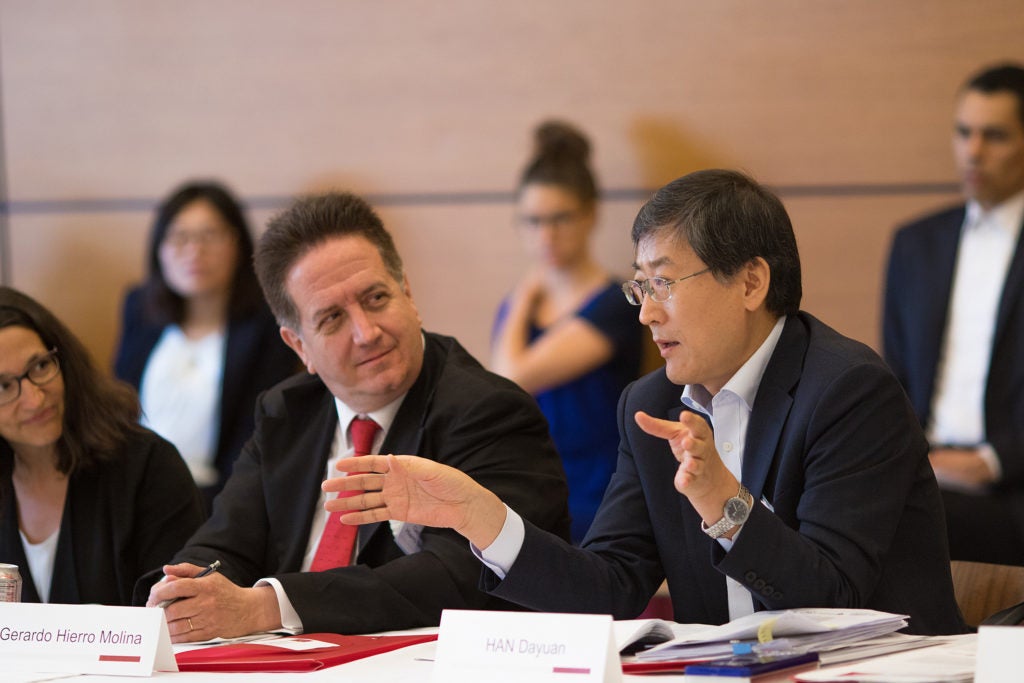
Dean Han Dayuan of Renmin Law School (right) moderated the panel on disability on the final day of the conference. He is pictured here with Gerardo Hierro Molina, professor of constitutional law and family law at the National Autonomous University of Mexico School of Law.
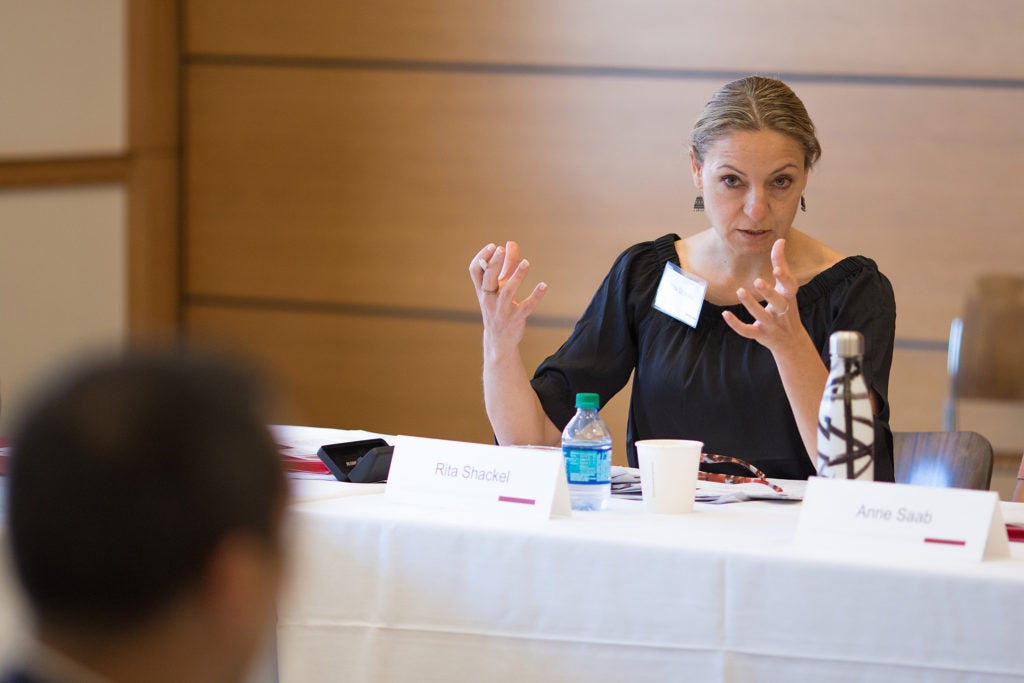
Dr. Rita Shackel of Sydney Law School speaks on the Gender and Family panel.
Cui Fengming joined the Harvard Law School Project on Disability in 2008 and currently serves as the Director of its China Program. She is also an adjunct professor at Renmin Law School. Cui moderated the panel concerning China as a case study.
Guo Rui LL.M. ’06 S.J.D. ’13, who teaches corporate law, disability rights, and comparative law at Renmin Law School, discussed “The Rise and Fall of the Board of Directors in China.”
Han Dayuan, a former visiting scholar East Asian Legal Studies who this summer completed an eight year tenure as dean of Renmin University of China Law School, moderated the panel concerning disability.
Thomas Kadner Graziano LL.M. ’94, is a professor at the University of Geneva, where he is director of the Department of Private International Law and director of the Program on Transnational Law. During the conference, Kadner Graziano presented a talk entitled “No Need to Reinvent the Wheel Again and Again: Comparative Law as a Means for Development.”
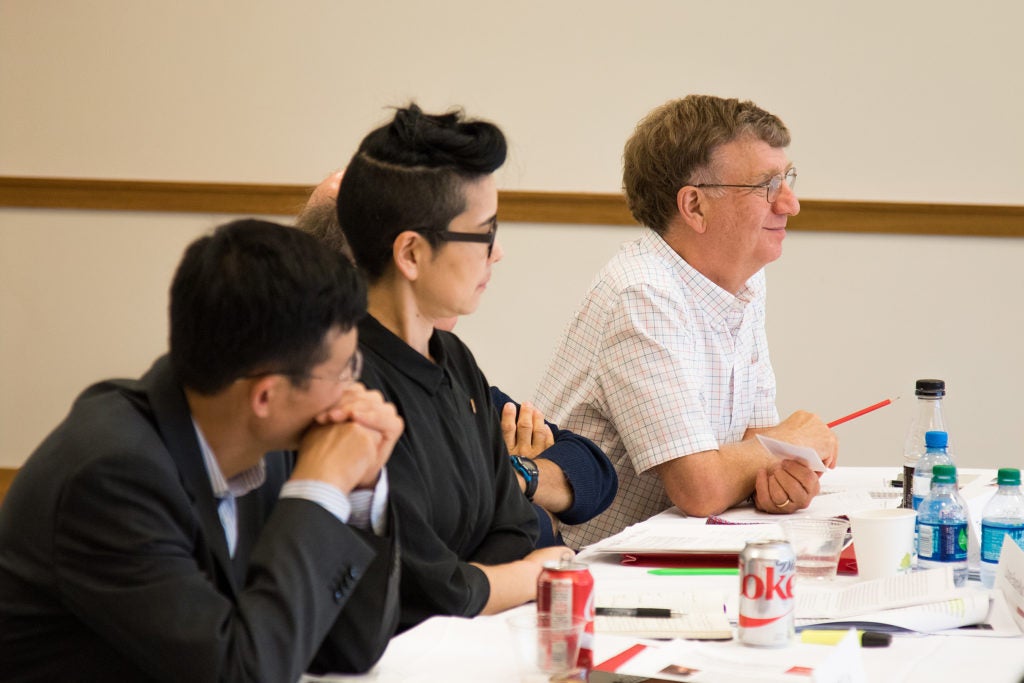
Dr. Rita Shackel of Sydney Law School speaks on the Gender and Family panel.
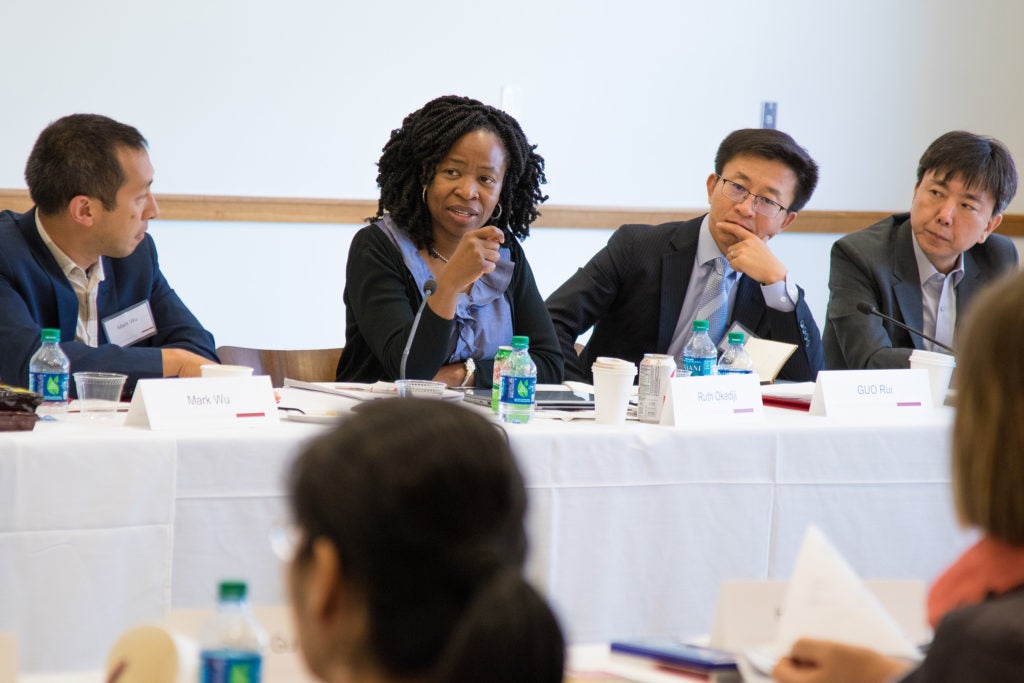
Ruth Okediji, a leading IP scholar who recently joined Harvard Law as a faculty member and co-director of the Berkman Klein Center for Internet & Society, joined the first panel of the conference, which addressed business and trade.
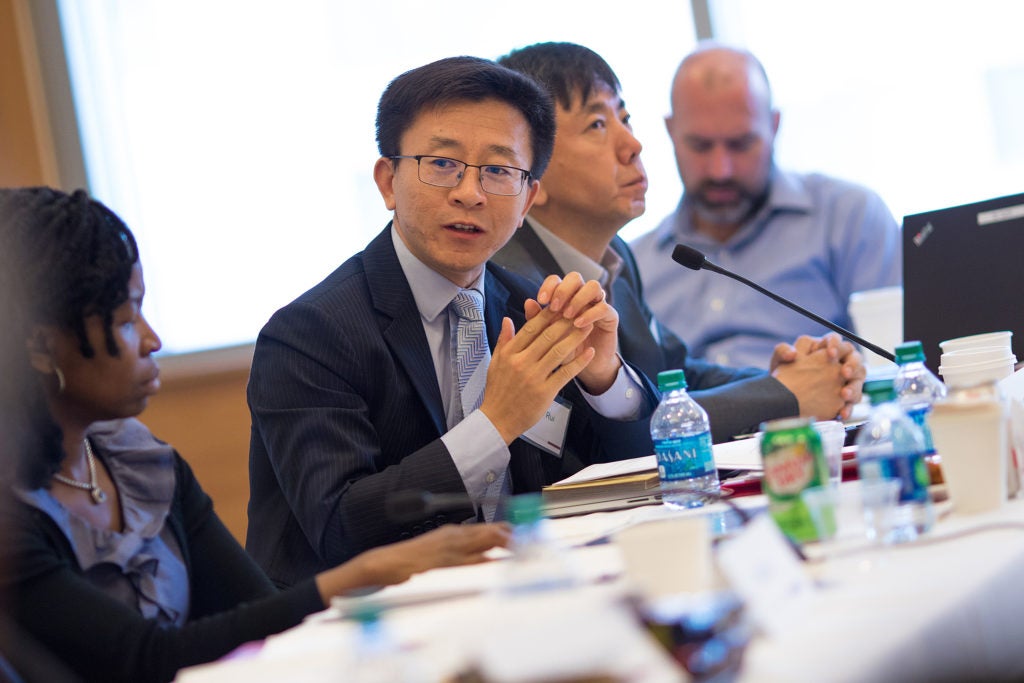
Guo Rui of Renmin Law School, on the Business and Trade panel. He received his S.J.D. from Harvard Law in 2013.
Professor Ruth Okediji LL.M. ’91 S.J.D. ’96, the Jeremiah Smith Jr. Professor of Law at Harvard Law School, discussed her paper “Intellectual Property in the Image of Human Rights: A Critical Review.”
Michael Ashley Stein ’88, co-founder and executive director of the Harvard Law School Project on Disability and a visiting professor at Harvard Law School, presented “Children with Disabilities, Human Rights and Sustainable Development.”
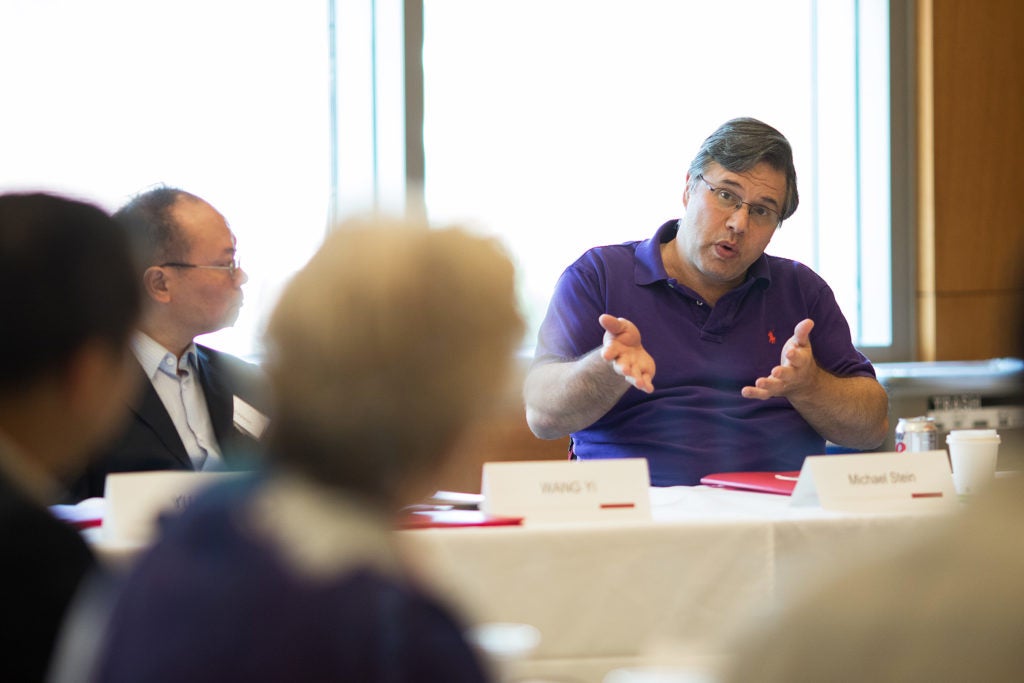
On the final day of the conference, Michael Ashley Stein ’88 participated in a panel on the topic of disability, discussing “Children with Disabilities, Human Rights and Sustainable Development.” Stein, a visiting professor at Harvard Law, is co-founder and executive director of the Harvard Law School Project on Disability.
Wang Yi, a former visiting scholar at EALS and incoming Dean of Renmin University, delivered a paper on property law in China.
HLS Assistant Professor Mark Wu discussed his paper entitled “Right-Sizing Trade Agreements” during the panel on business and trade.
Zhu Jingwen, a former EALS visiting scholar and professor at Renmin University, delivered a paper concerning popular perception of different mechanisms for the control of state power.
Sara Zucker, the director of International Legal Studies at Harvard Law School, moderated the conference’s closing panel regarding three examples of the potential for reform.
